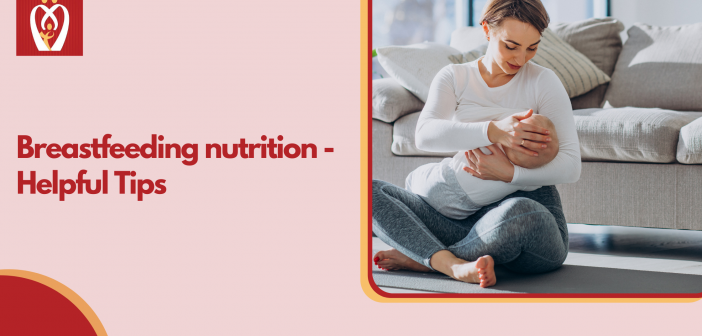When you are breastfeeding your baby, you are providing essential nutrients for his or her development and well-being. Perhaps you have questions about which foods and drinks are best for you, and how your diet affects breastfeeding your baby. Read more about Breastfeeding nutrition.
Recognize the fundamentals of breastfeeding dietary requirements.
While breastfeeding, do I need more calories?
You may need to consume more calories to produce milk – about an additional 330 to 400 calories a day.
You can gain these extra calories by eating foods high in nutrients, such as whole-grain bread with a spoonful of peanut butter, a medium banana or apple, and 8 ounces of yoghurt.
While Breastfeeding nutrition, what foods should I eat?
In order to support your milk production, make nutritious choices wherever possible. Lean meat, eggs, dairy, beans, lentils, and mercury-free seafood are all good sources of protein. Consume a wide variety of whole grains, fruits, and vegetables.
Breast milk will have a different flavour if you eat a range of foods during breastfeeding. Introducing your infant to a variety of flavours now will help him or her adopt solid foods later on.
Pregnant women may be advised by their midwife to continue taking a daily multivitamin and mineral supplement until they are weaned.
Vegetarian diets necessitate a careful selection of meals that provide the necessary nutrients for breastfeeding. Some examples are:
- Consume foods high in iron, protein, and calcium. Lentils, fortified cereals, leafy green vegetables, peas, and dried fruit like raisins are all good sources of iron. Foods strong in vitamin C, such as citrus fruits, can aid in the absorption of iron.
Soy products and meat replacements, legumes, lentils, nuts, seeds, and whole grains are all good sources of protein. Aside from those two, there are other possibilities like eggs and dairy.
Dairy products and leafy green vegetables are good sources of calcium. Additionally, there are calcium-enriched and fortified goods such as soy milk, soy yoghurt and tofu, as well as juices and cereal.
- Consider taking more vitamins and minerals. A daily vitamin B-12 supplement is likely to be recommended by your GP. Vitamin B-12 is mostly found in animal sources, making it difficult for vegetarians to obtain adequate amounts. If you don’t consume fish, you may want to talk to your GP about taking an omega-3 supplement. A deficiency in sunlight and a lack of vitamin D-enriched meals may necessitate the use of vitamin D supplementation. In order for calcium and phosphorus to be absorbed, your infant needs vitamin D. Rickets, a softening and weakening of the bones as a result of insufficient vitamin D, can be the result of deficiency. Vitamin D supplements can be given to babies, so be sure to inform your GP if this is the case.
During my breastfeeding journey, what foods and beverages should I limit or avoid?
Certain meals and beverages should be avoided while you’re nursing. Here are a few:
- Alcohol – There is no safe amount of alcohol in breast milk for a newborn. Breastfeeding should be avoided while you are under the influence of alcohol. Consider pumping milk for your baby before you go out for a drink.
- Caffeine – Avoid consuming more than 2 to 3 cups of caffeinated beverages (16 to 24 ounces) each day. Caffeine in your breast milk may upset your infant or disrupt your baby’s sleep, depending on how much caffeine you consume.
- Fish – Protein and omega-3 fatty acids can be found in abundance in a variety of seafood. However, mercury and other pollutants are found in most seafood. A baby’s neurological system may be harmed if it receives too much mercury from the mother through breast milk. Prevent your baby from being exposed to mercury by avoiding fish such as swordfish, king mackerel, and tilefish.
Pregnacare breastfeeding tablets are formulated to provide you with all the crucial nutrients needed during the breastfeeding period, helping you to protect your diet at a crucial time. Nutrients like vitamin D, iron, calcium, iodine and omega-3 makes it the ideal tablets for breastfeeding mums.
Remember that breastfeeding does not necessitate a special diet. You and your kid will reap the benefits if you focus on making good choices!







